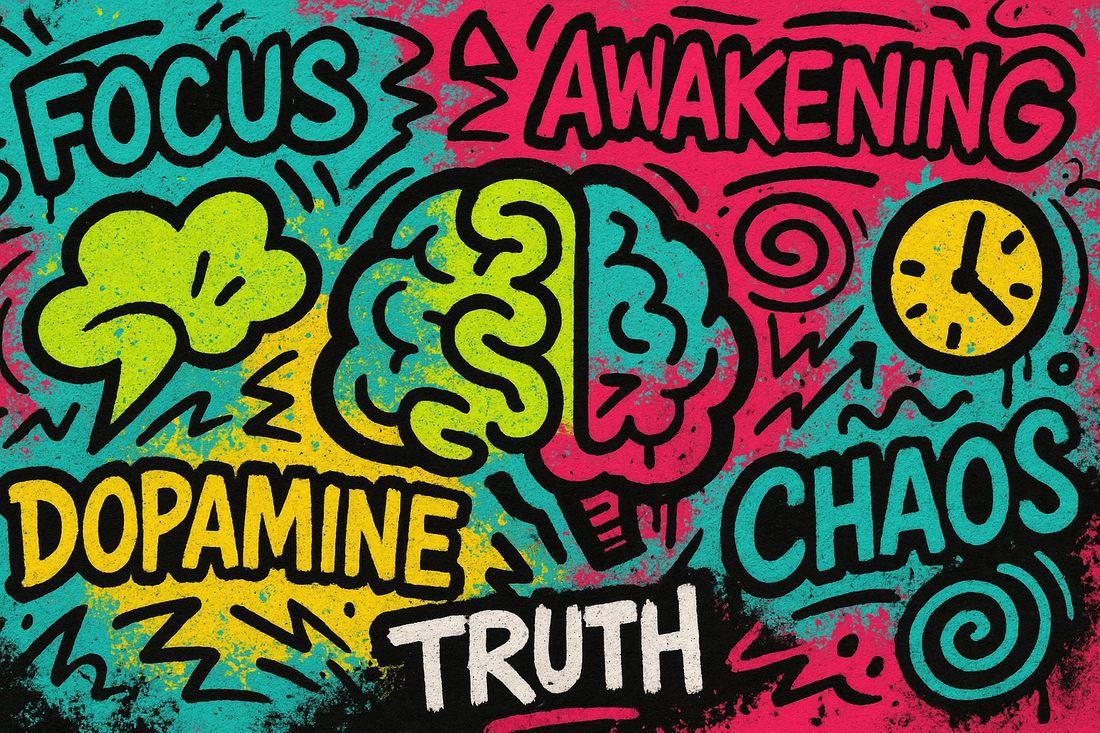
Beyond Words: Navigating Dyslexia And Mental Health In Adult Life
Share
Lately, I’ve heard so many people ask if there’s a link between dyslexia and mental health. If you’ve felt overwhelmed or anxious because of dyslexia, you’re not alone. In our newest episode of “Truth About Dyslexia” (player at the top of this page), we explore how dyslexia can affect your emotional wellbeing, from self-esteem to anxiety and beyond.
We hear from experts and share personal stories that highlight the hidden pressures faced by dyslexic adults. We talk about how misconceptions can fuel feelings of isolation, plus practical ways to support your mind, build healthier habits, and find community. It’s not just about struggles; it’s a testament to the human spirit and the strength many dyslexic adults discover in themselves.
Why Dyslexia and Mental Health Are Closely Linked
Dyslexia isn’t always obvious. You might read well enough when you’re not stressed, or create brilliant ideas but struggle with certain details. Yet behind the scenes, you may feel misunderstood or worry that others see you as “less than.” This tension can breed anxiety, low self-confidence, and even depression.
When daily tasks like reading emails, taking notes, or organising thoughts feel like major hurdles, it’s easy to question your self-worth. The small stumbles—like mixing up words or forgetting a line—add up and chip away at your resilience. By recognising these silent struggles, we can offer better support and shift how society views dyslexia.
“Sometimes dyslexia feels like the world’s best-kept secret. You can be doing fine on the outside, but inside, there’s this constant chatter of self-doubt.”
Stories of Triumph Over Doubt
The podcast features accounts of incredible individuals who dared to break free from negative labels. They didn’t let past disappointments define them, even when teachers or bosses wrote them off. Instead, they found unique ways to play to their strengths. Their journeys remind us that growth is possible at any stage of life.
Many guests mention feeling relieved once they understood the connection between dyslexia and mental wellbeing. It gave them permission to be kinder to themselves. With counselling or open conversations, they discovered fresh perspectives and a sense of hope. These brighter stories show us we can find purpose in what once felt impossible.
Practical Tools for Peace of Mind
You’re not powerless. There are simple steps to care for your mental health while managing dyslexia:
- Mindful scheduling: Give yourself extra time for tasks that typically cause stress. This reduces panic and helps you approach challenges calmly.
- Note-taking apps: Digital tools can record your thoughts or transcribe meetings automatically, which is brilliant when you need to focus on the big picture.
- Daily decompression: A few minutes of quiet or a short walk can clear your head, ease tension, and prepare you for the next task.
Small practices like these reinforce the idea that you deserve space and understanding. By putting them into action consistently, you’ll feel more confident, even when life throws curveballs.
Embracing the Power of Community
In the podcast, we highlight that going it alone can make dyslexia feel heavier than it needs to be. No one should spend late nights battling negative thoughts without help. An encouraging community—online groups, local meetups, or supportive friends—can ease the load.
By sharing your story, you’ll find that others relate to your fears and struggles. That mutual understanding can spark new ideas and coping techniques you hadn’t considered. It also breaks down shame. Realising you’re part of a bigger tapestry of people with similar journeys can bring immense peace of mind.
Tools and Resources for Wellbeing
Beyond awareness and self-compassion, practical resources can transform your daily life. Here are a few favourites from the episode:
- Assistive technologies: Text-to-speech and speech-to-text apps can reduce stress when reading or writing lengthy documents.
- Professional counselling: Therapists familiar with dyslexia can guide you through tangled thoughts and help you build resilience.
- Structured support groups: Many communities offer groups that discuss shared experiences, swap survival tips, and celebrate wins.
These aren’t magic fixes. They work best when combined with an understanding of your own emotional triggers and consistent self-care.
- Recognise the triggers: Spot the moments that set off stress or self-doubt, then plan how to handle them better next time.
- Set realistic goals: Avoid piling on tasks all at once. Break them into smaller steps, so you can celebrate small moments of success.
- Seek support sooner rather than later: Whether it’s from friends, family, or professionals, leaning on a support network brings comfort and momentum.
Key Takeaways
- Dyslexia can trigger anxiety and low self-esteem, but understanding the link is the first step to healing.
- Hearing real stories of transformation reminds us that triumph is possible, even after years of frustration.
- Simple tools and mindful routines help reduce day-to-day stress and build confidence.
- Connecting with others who’ve faced similar challenges nurtures hope and self-belief.
- Professional counselling and accessible tech solutions can open up new possibilities and set you on a brighter path.
For a deeper dive into these topics, have a listen to the full podcast episode at the top of this page. Feel free to share your thoughts and experiences in the comments. We’re creating a space where dyslexic adults can not only survive, but truly flourish.

